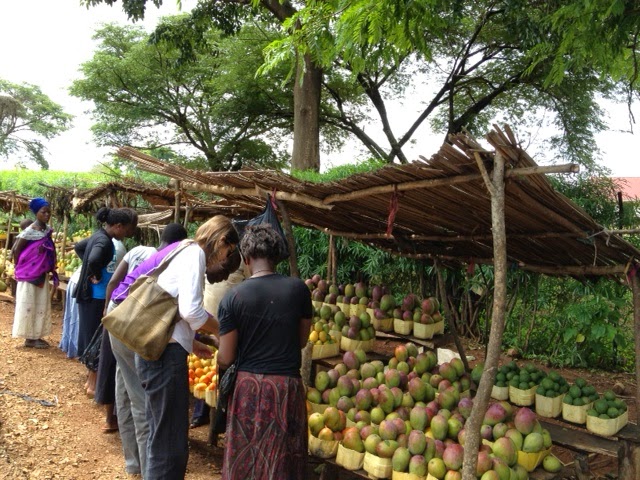So a large team spent the first part of the week in Soroti exploring the options with partner organisations based in the area. It also gave me the opportunity to follow up on work I did last time I was in Soroti at the end of January. Not surprisingly it rained heavily on Tuesday night. A member of staff at the partner tells me I'm a blessing, as it always rains when I visit!
On the way back to Mbale we passed several yoked oxen ploughing fields in teams of 2 or 4. Our rather bemused driver helpfully stopped so I could take a picture.
It's not so unusual in Uganda, although I have never seen so many teams in one stretch of countryside. But it is like taking a step back in time in the UK where now ploughing is all done by machinery.
We are also at the start of the mango season again and the roadside stalls between Mbale and Jinja were piled high.
One of the big boxes containing around 10 mangos costs between 75p and £1 at the moment dropping to 50p at the height of the season.
I spent the rest of the work working with partners to agree budgets for the next year. We are working with partners to bring direct costs up to 70% of the total. Still quite generous when I remember some of the grants in York where even 10% of indirect costs had to be defended.
Yesterday we went back to the Ba'hi temple in northern Kampala and had a short walk around the grounds. It is very peaceful and beautiful with fabulous views out over Kampala.









